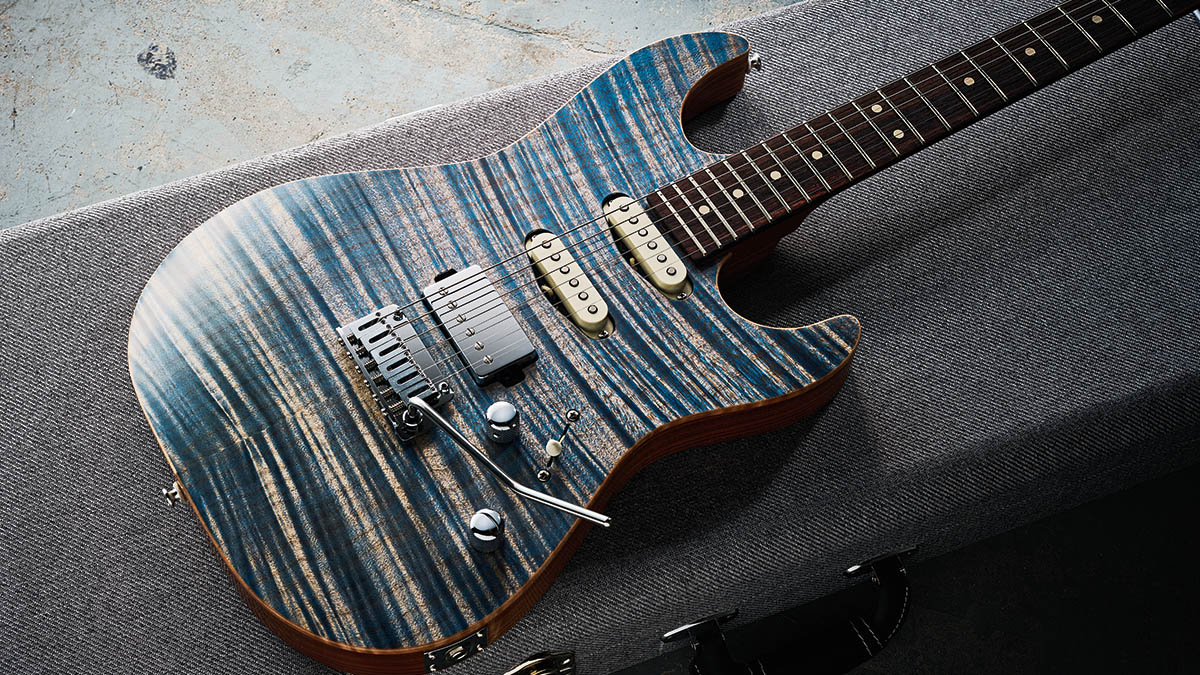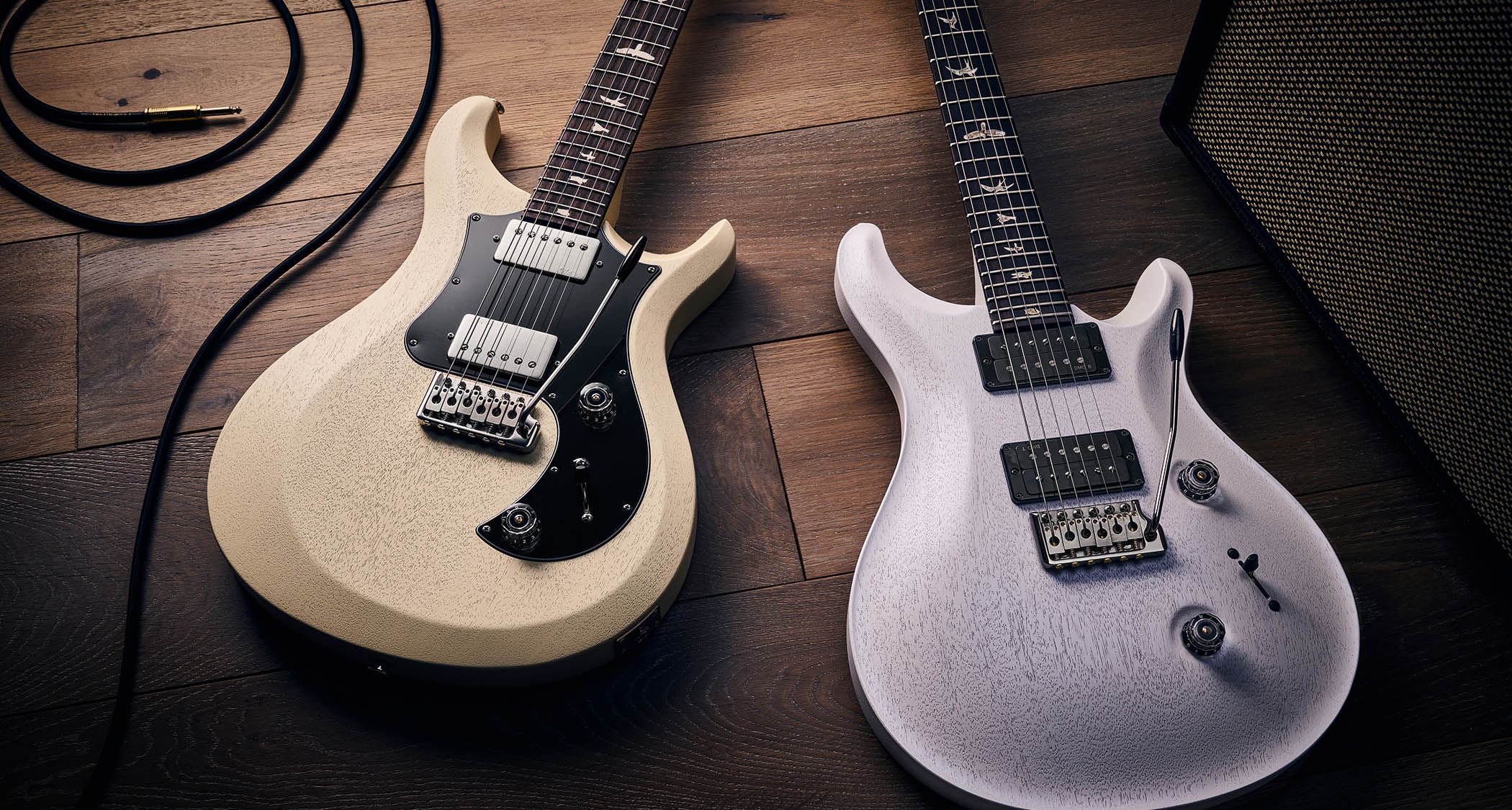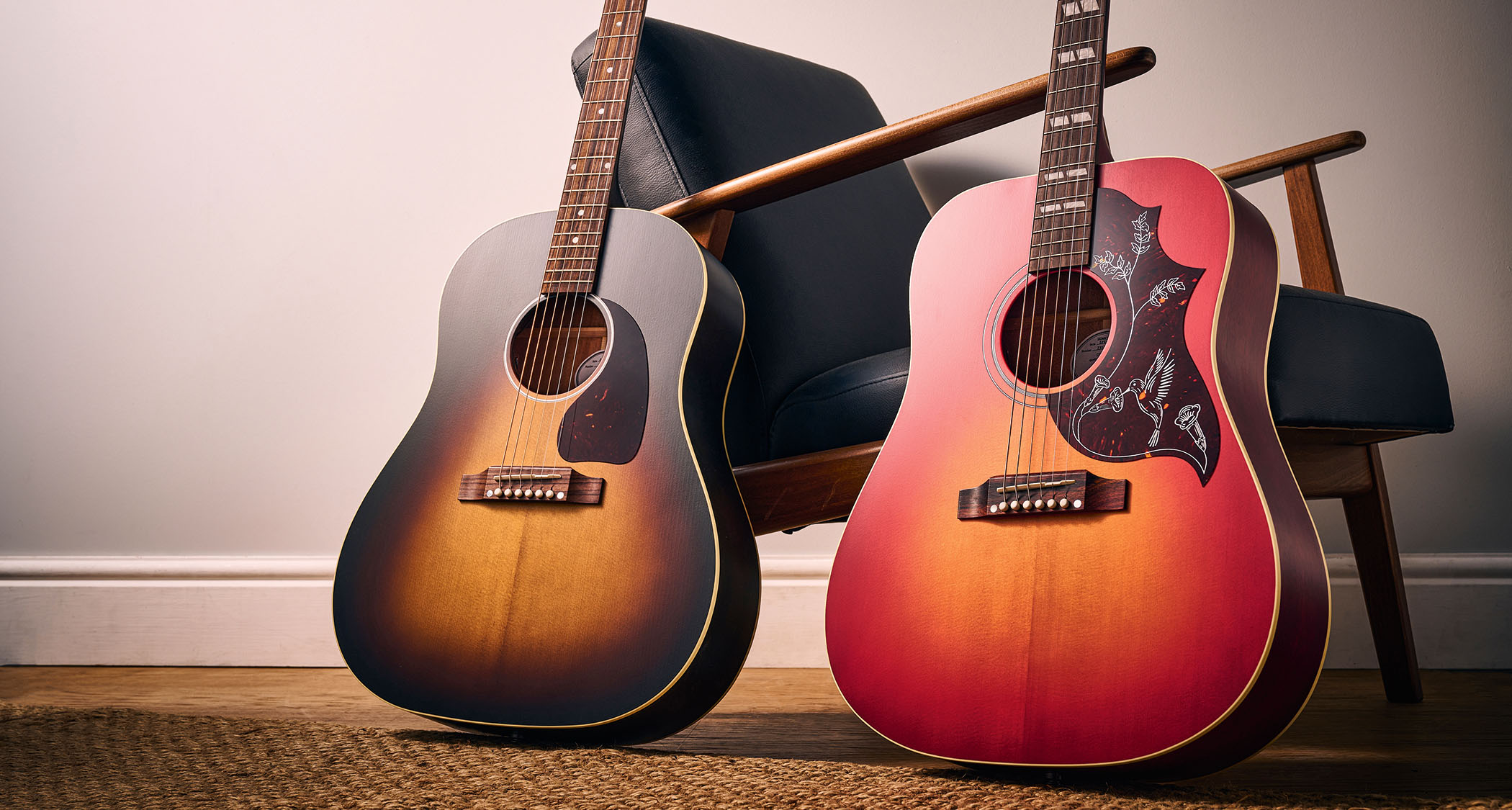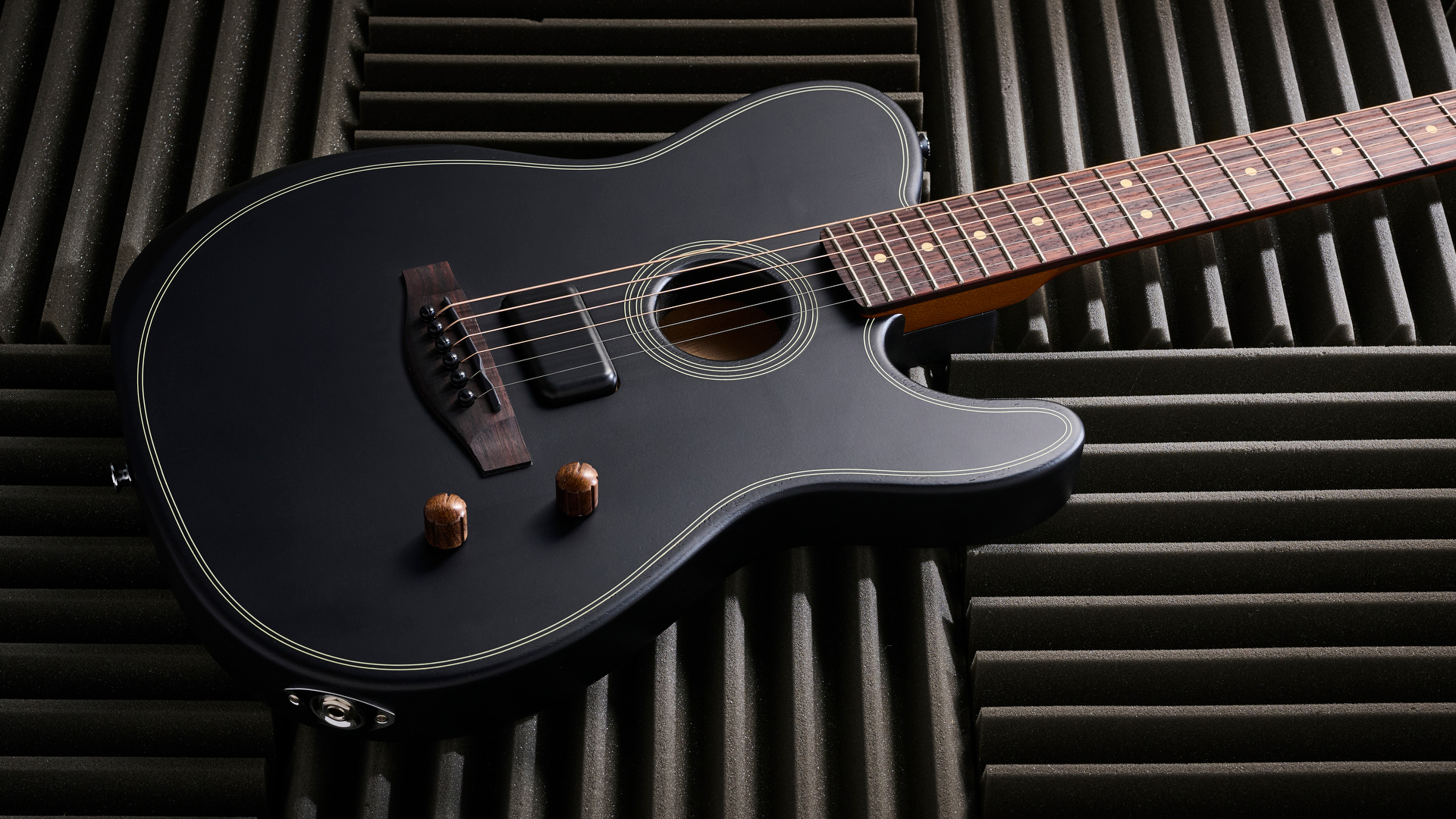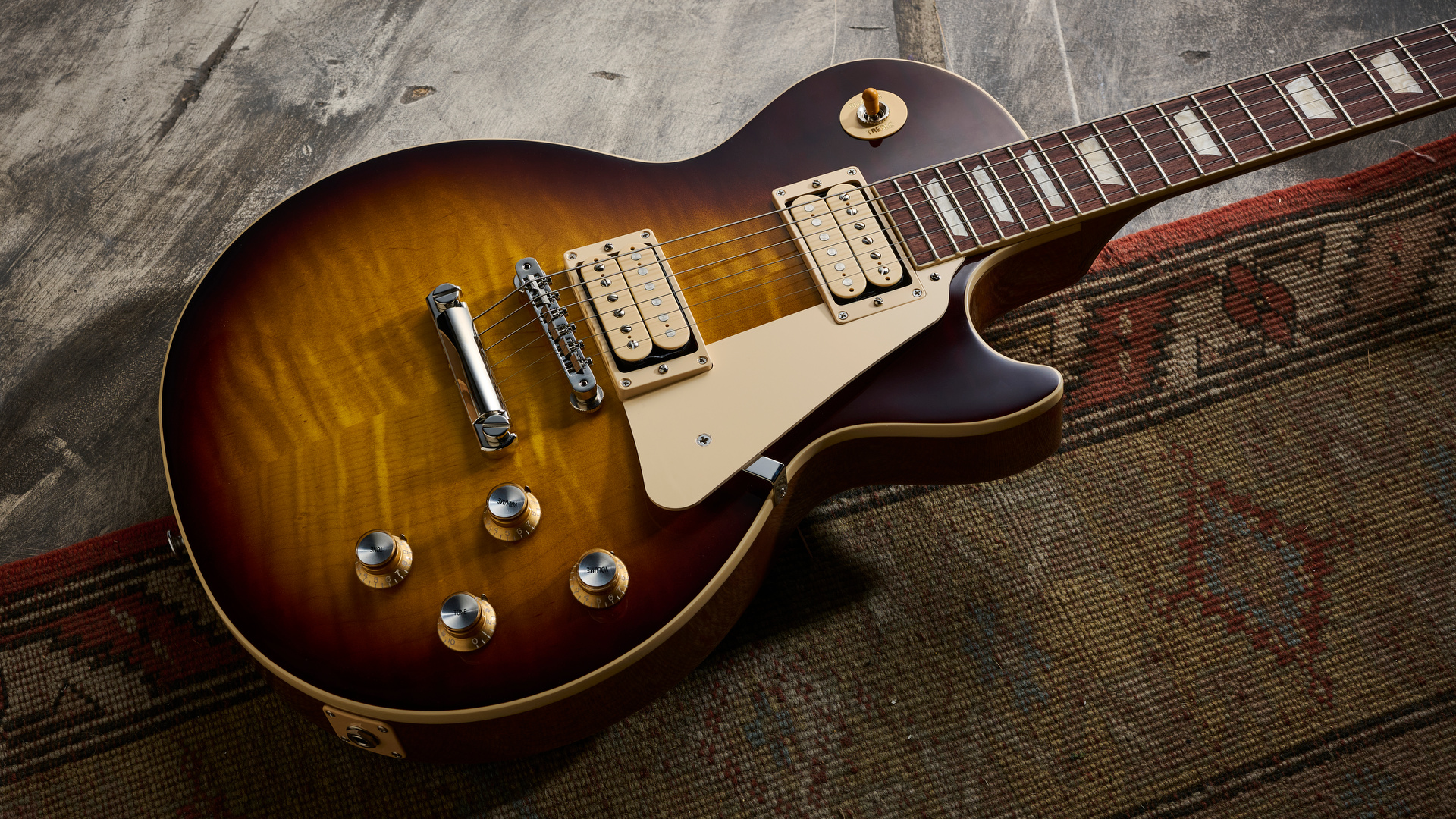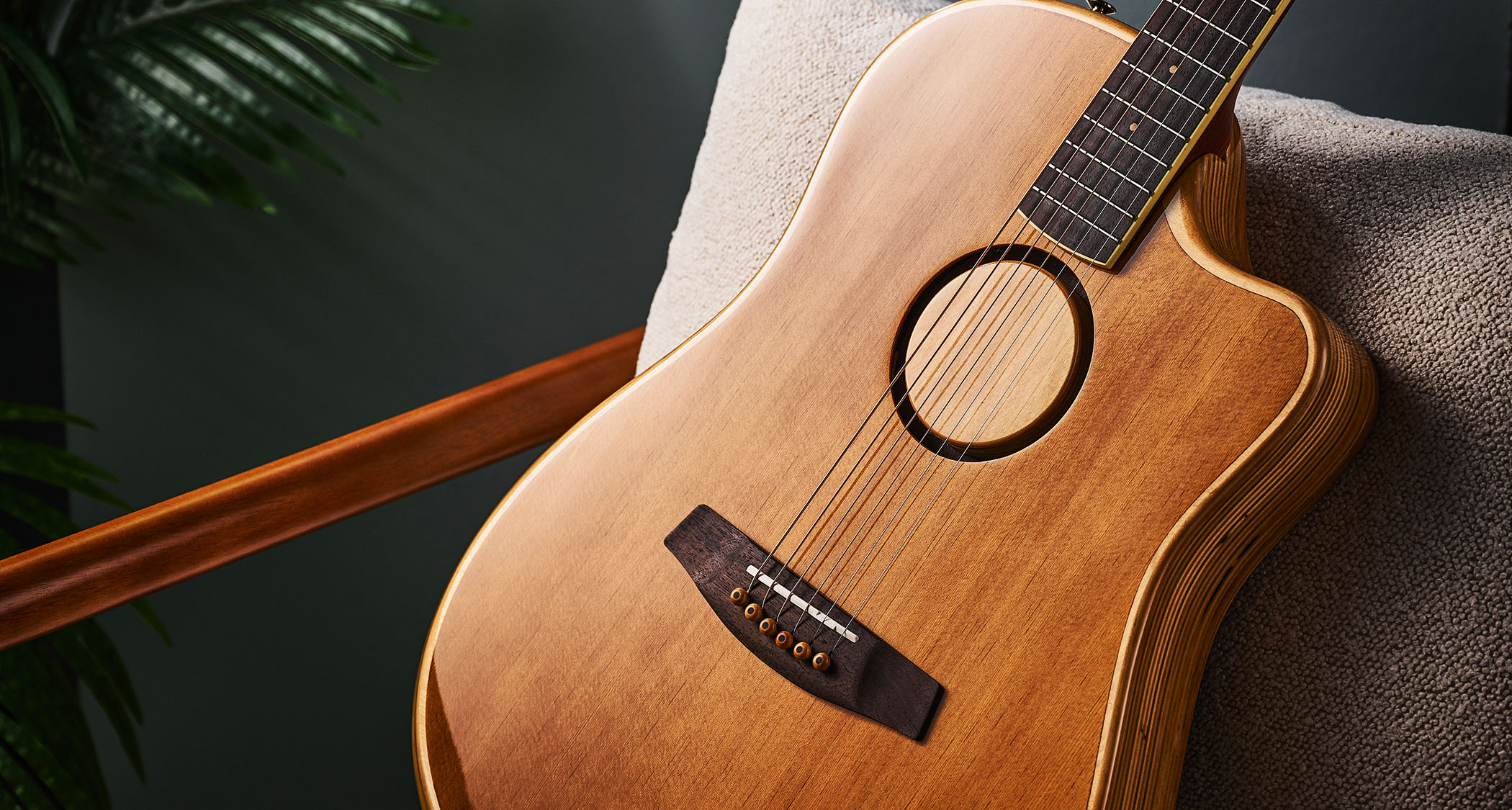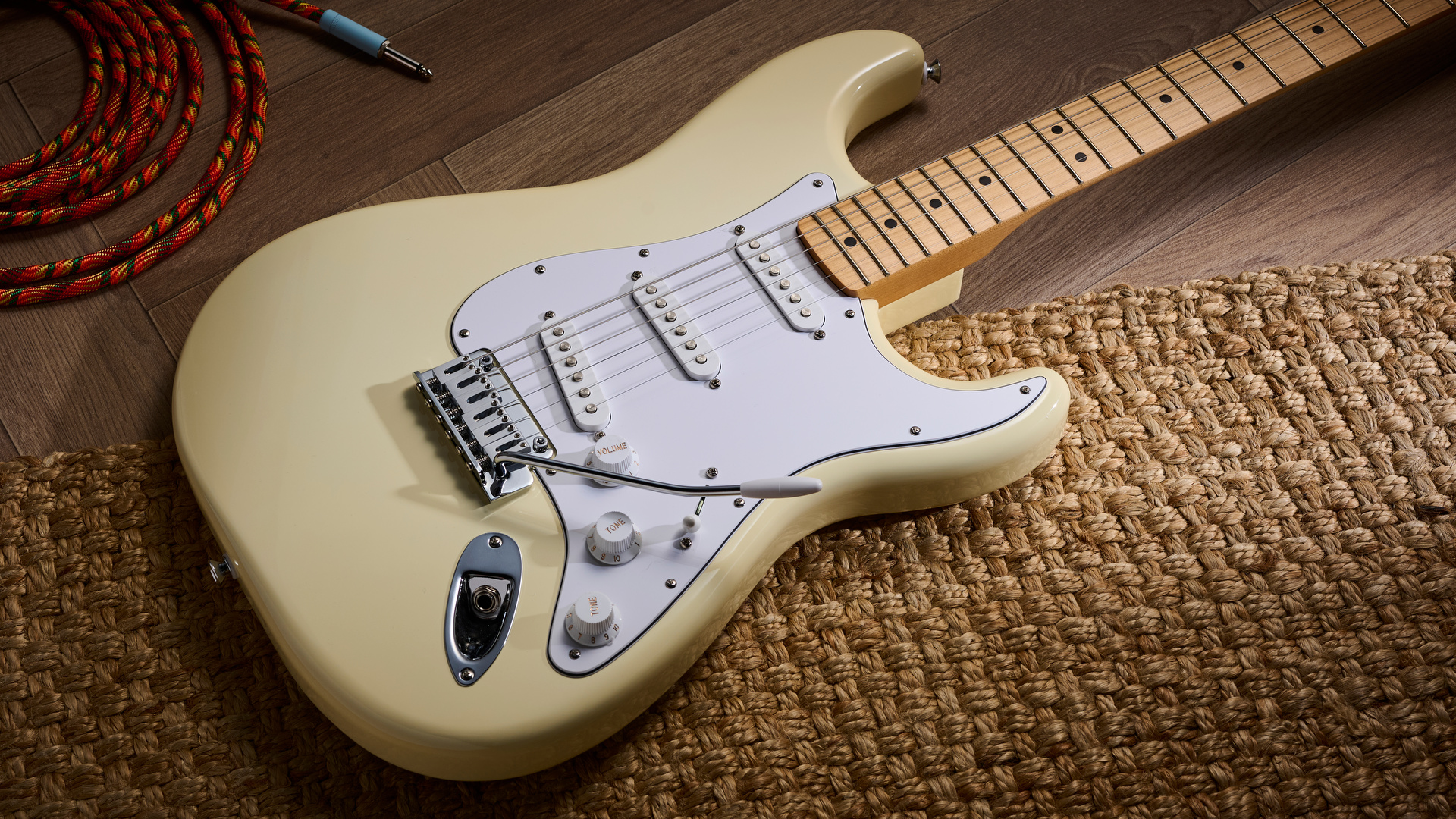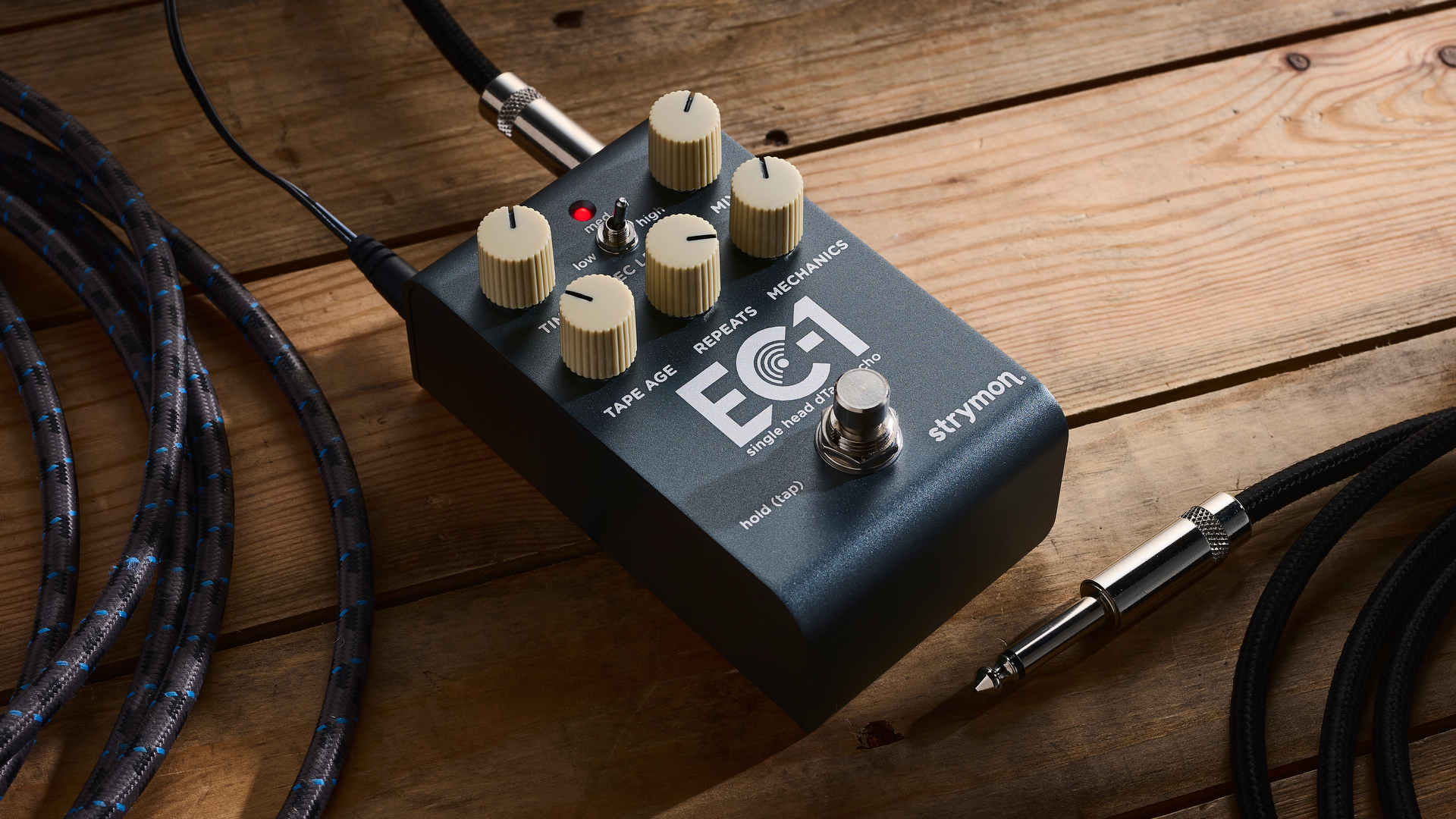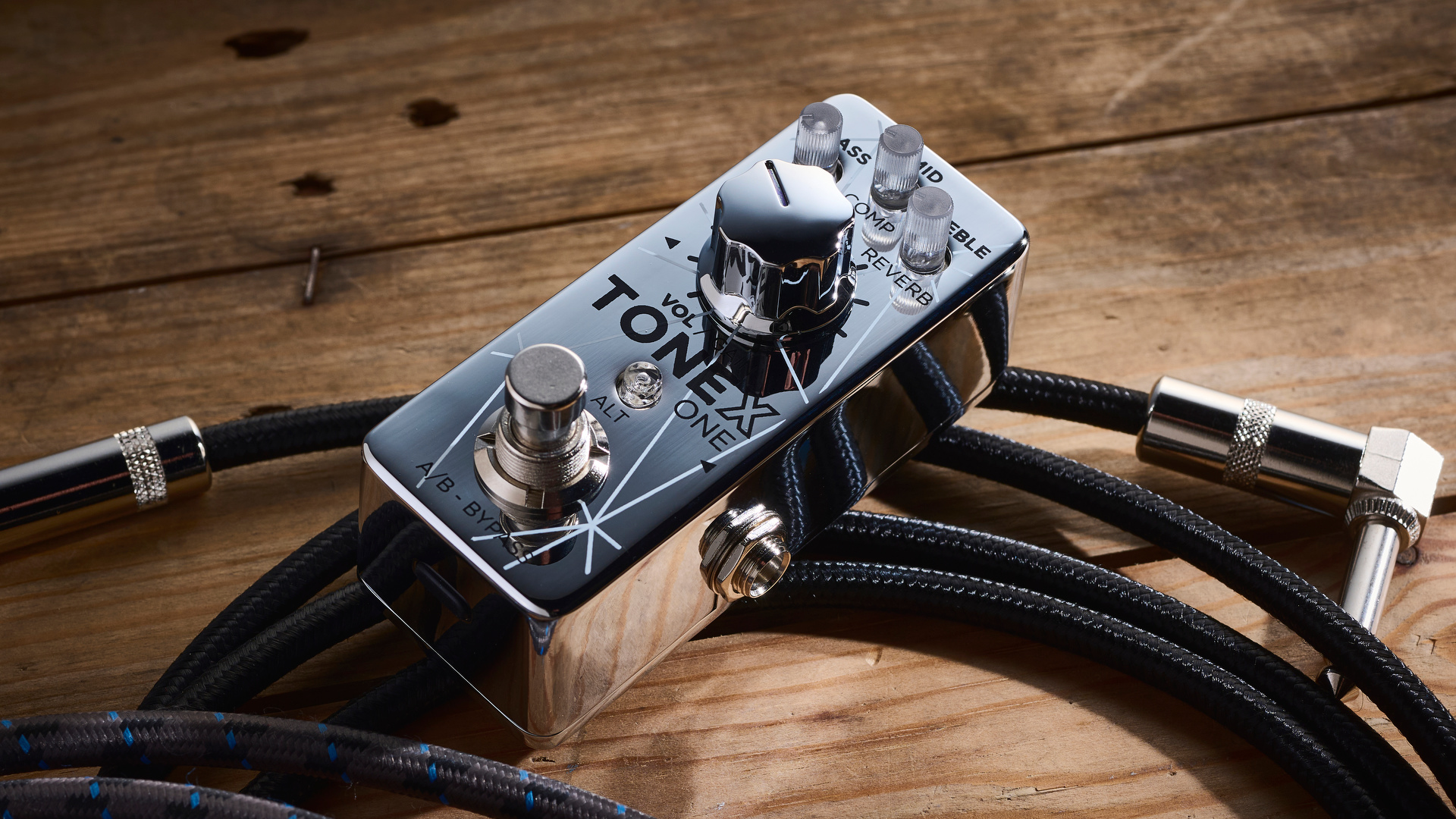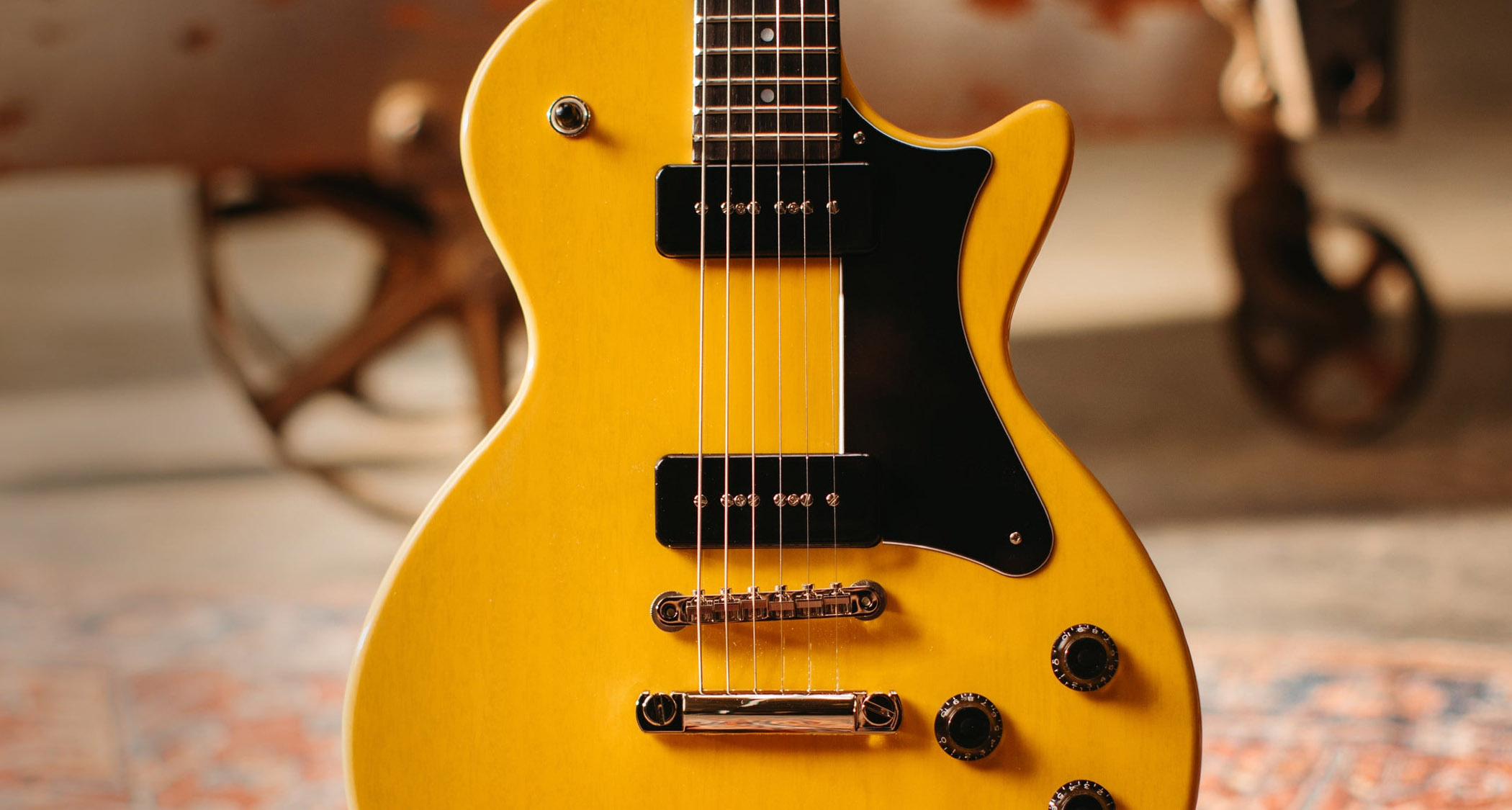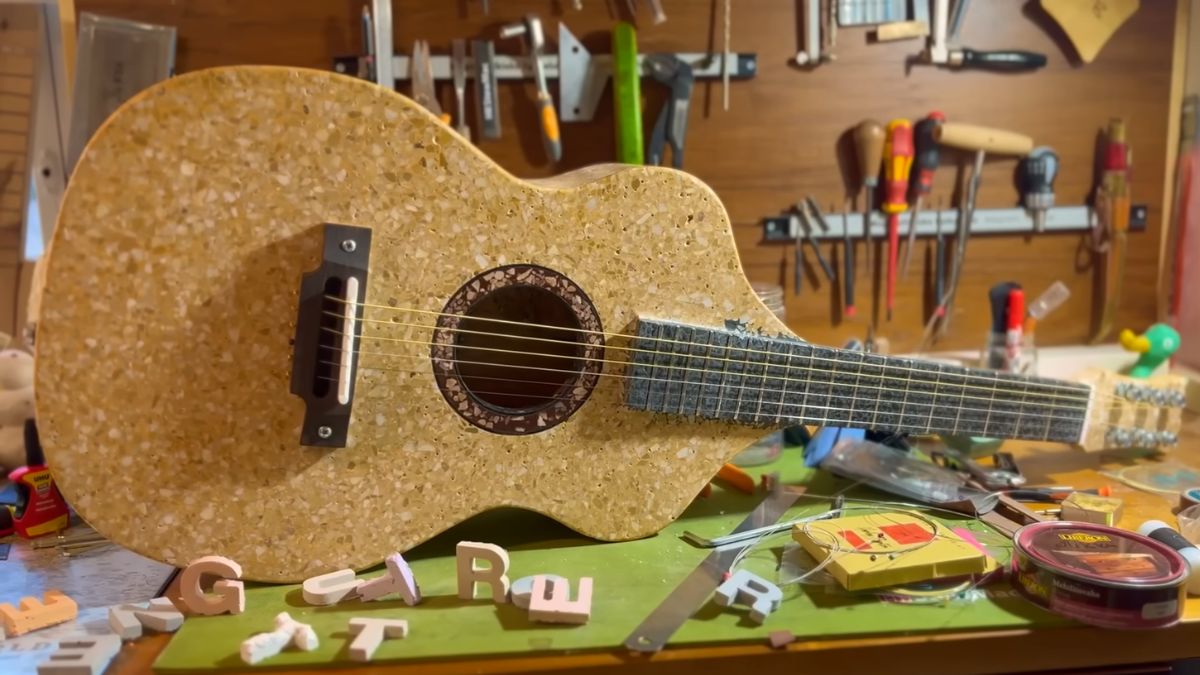Guitar World Verdict
Astonishing craft married to stellar sounds with a feel that few can match and, importantly, an options list that lets you truly spec your dream. Wow!
Pros
- +
Stellar build quality.
- +
Light weight.
- +
Excellent neck feel.
- +
Setup and playability.
- +
Strong, versatile sounds with clarity when you need it.
Cons
- -
It’s hardly a new original design, but the familiarity is part of the appeal.
You can trust Guitar World
When you think of Patrick James Eggle, it’s quite possibly his exceptional single-cut Macon that springs to mind, but he’s far from an only-Gibson-inspired maker.
Patrick’s Oz model, for example, applies stellar craft to the original production electric and the 96, here, interprets and modernises the Stratocaster platform as so many makers have done since the ’80s heyday of what we loosely call the ‘SuperStrat.’
But whatever the build, Patrick’s guitars are unified by the craft, which is never short of exceptional. We hadn’t seen a picture of the guitar prior to its arrival, so we got our first glimpses on opening the case. From the light weight and a neck shape to die for, you just know this one is no different.
Okay, you might be thinking, this is just a modern HSS S-style that we’ve seen countless times before, but like any great musician taking on a well-known standard, it’s all about the interpretation of that melody or the reharmonisation of the chord changes. And, of course, this is about much more than simply plonking a humbucker by the bridge.
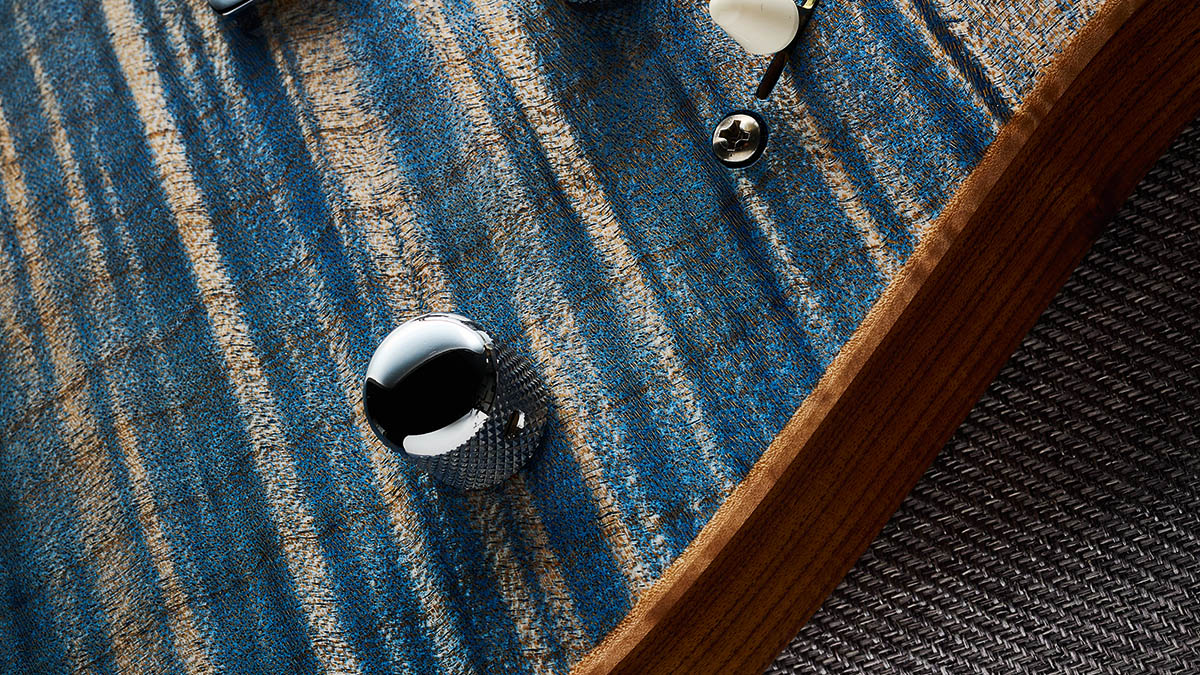
Typically, the Strat’s outline is adapted and slightly downsized with somewhat thinned and sharper horns. These are combined with the ‘sharp’ edge radius of the maple top, which is laid over the forearm contour, hence the ‘Contour’ in the name, a nod to Tom Anderson’s Drop Top.
Like so many before it, the design removes more of the Strat’s iconography by not having a scratchplate: the pickups direct-mount to the body, the controls are rear-mounted, and the output jack moves to the side on a chromed metal plate. Little gets in the way of the blue-jean-stained flames of the bookmatched maple top, its edges left natural to create the faux ‘binding’.
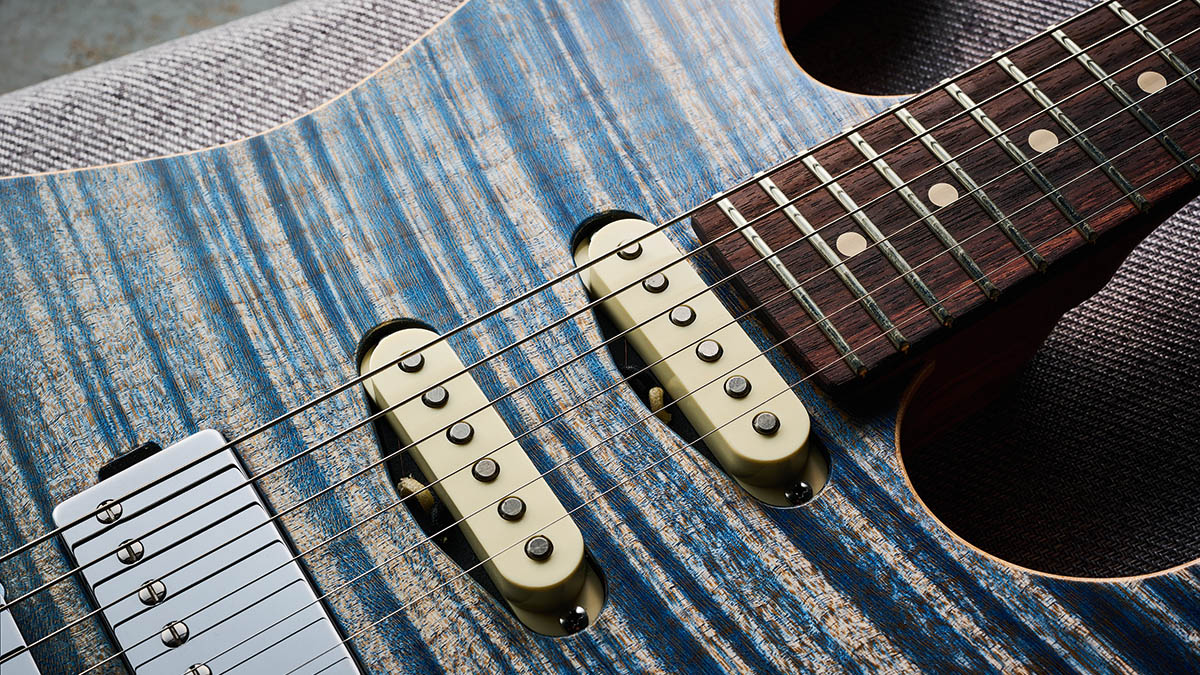
The back is only slightly less opulent with its striped lightweight ash, roasted to create its caramel colouring. It’s centre-joined with the grain of the two pieces diagonally matched. The rift-sawn roasted maple neck is similar in colour, although the stripped flame gives a third ‘flavour’ of exotica after the top and body back.
Again, pretty typically for the style, the rectangular heel of the inspiration is rounded, and both cutaways are chamfered on the back (as much for style as comfort we’d wager), while the gold-coloured anodised aluminium neckplate is recessed into the top, like the rear cavity cover. Only the vibrato spring cover sits unrecessed on the body back.
Gotoh’s 510 two-post vibrato is another staple of the high-end ‘SuperStrat’, and here it’s all-steel and floats parallel with the top. The nut is Graph Tech Tusq and the vibrato system is completed with classy rear-lock Gotoh tuners.
Feel & Sounds
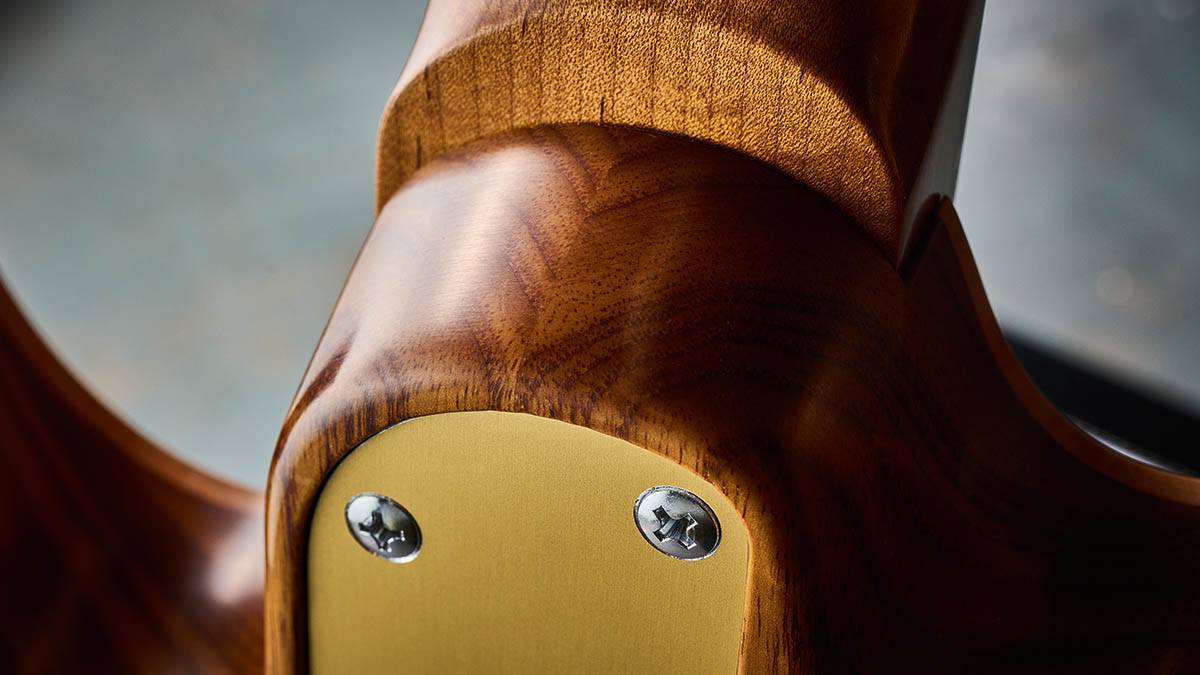
Many guitars at this price point almost seem too pristine, too perfect to touch, but that’s not the experience here. Aside from the glossed top, every surface is a very silky smooth satin, not least the neck back with its oiled finish, which feels like it’s already been played for years.
As Patrick tells us in the interview that follows this review, the shallow C profile is one of two that are offered on the bolt-on guitars. It has a compound radius and richly coloured rosewood fingerboard with big (but not silly big) jumbo frets.
It might all sound rather modern – indeed, we even get glow-in-the-dark Luminlay side markers – but in the hand it’s just impossibly comfortable with rolled fingerboard edges, mirror-shining frets and a sensible setup. At 43mm wide at the nut with a 1st fret depth of 21.3mm filling out to 23.2mm by the 12th, the neck actually feels like a near perfect balance of thin and big.
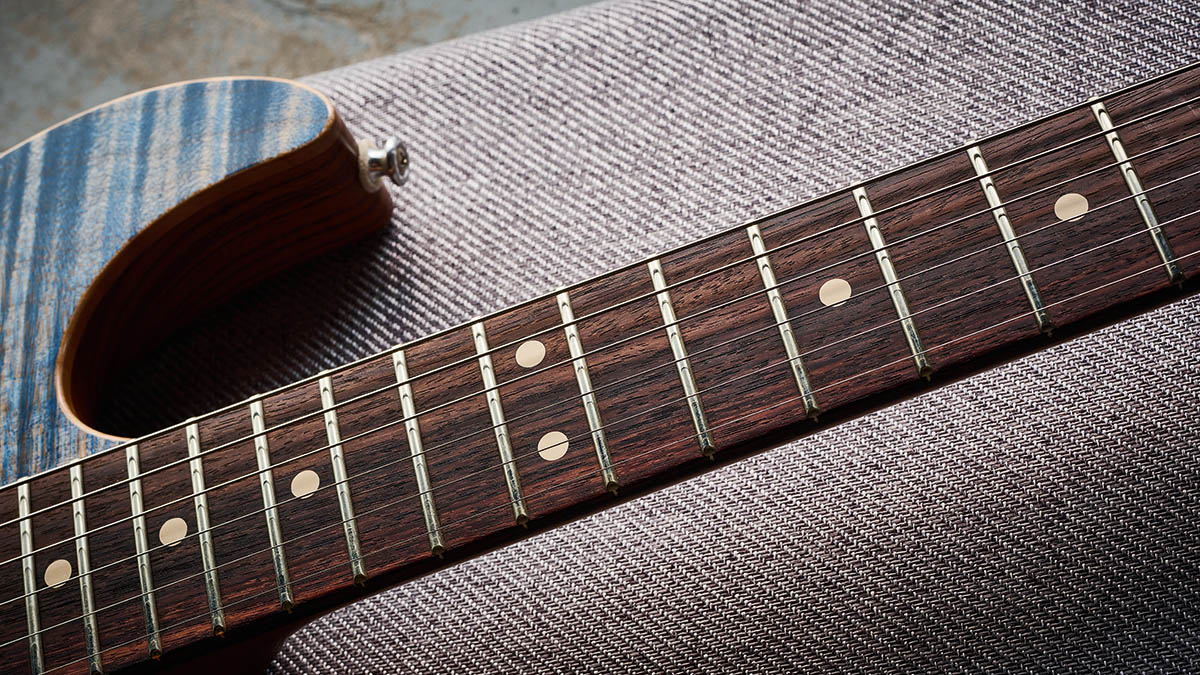
Like the build, the sounds we hear are superb – even unplugged the voice is crisp, instantly responsive and very alive. Plugged in, both single coils sound very sweet and musical, but there’s a detailed high-end clarity that no doubt goes hand in hand with the build; the single coils sound beautifully ‘produced’.
We’re only half-way down the selector switch and the choppy neck and sweetened, almost delicate neck and middle are standout sounds. The middle is perfectly suited, too, a slightly chimier version of the neck with a very matched character.
There’s no automatic split for the bridge humbucker when combined with the middle, so the mix does sound a little thicker, but you could argue it’s a little less clichéd, a little chewier, especially with some amp grit.
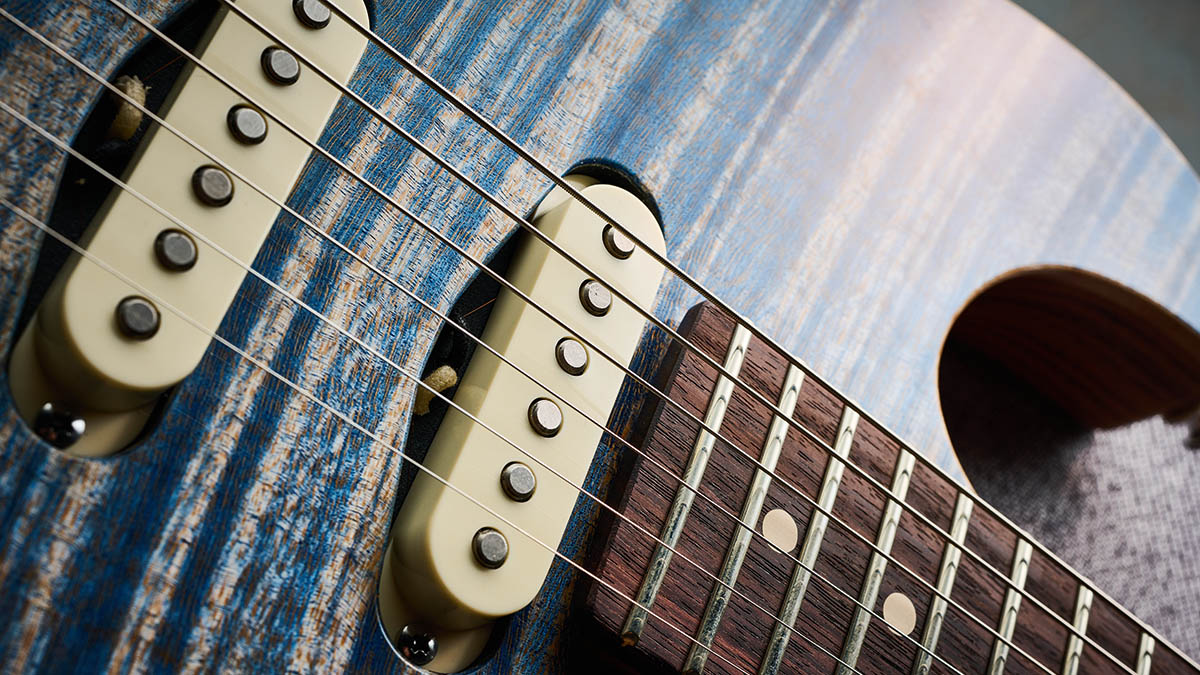
Jumping to the bridge humbucker and it’s a louder contrast with greater thickness and yet it’s not all midrange heat – there’s a PAF-like response but with a kick rather than seeming like two completely different instruments, as many HSS guitars like this can.
The circuit is very good, too, with little loss of highs as you pull back the volume. And that tone sounds very musical: a slight reduction pulls back the presence, not least of the single coils, almost creating an older voice. There’s a little high-end lift with the ‘blower’ switch pulled up, and the two extra sounds – bridge and neck, and all three together – are viable inclusions.
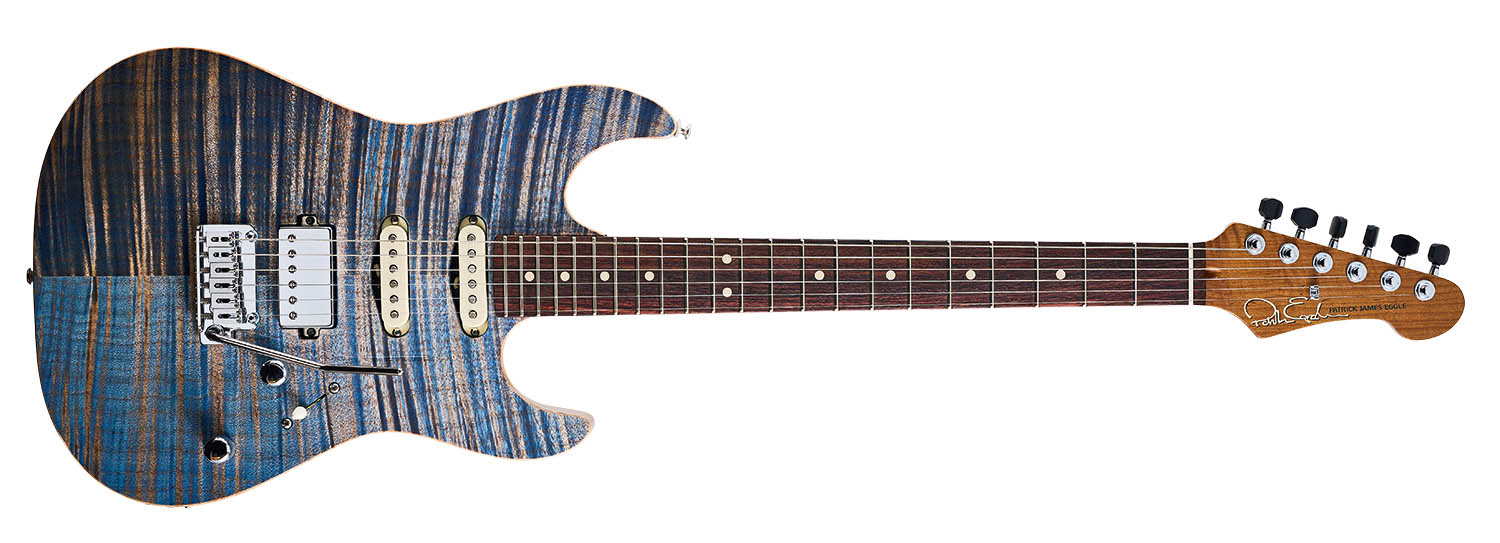
Verdict
A glance at the price makes it easy to dismiss a model such as this as just another ‘posh’ guitar. Until you play it, that is. Like so many instruments we’ve had through our hands from Patrick James Eggle over the past near-decade, the build is always very good, but we’d wager it actually seems to improve on each instrument we get.
Okay, this is hardly bringing a new style to the table, but it actually feels like an old guitar – with no cracked lacquer let alone any relicing in sight, although both are options – and despite its modern neck specification, this is a major trick in the PJE cookbook.
Like the build, there’s a crispness and articulation to the sounds with some roomy depth, not to mention a very well-tuned circuit, that gives you, the player, the choice of what you want to hear. Astonishing craft married to stellar sounds with a feel that few can match and, importantly, an options list that lets you truly spec your dream. Wow!
Specs
- PRICE: £4,110 (inc hard case, approx $5,299)
- ORIGIN: UK
- TYPE: Double-cutaway solidbody electric
- BODY: Roasted swamp ash with 4A grade maple top
- NECK: Roasted maple with ‘Shallow C’ profile
- SCALE LENGTH: 648mm (25.4”)
- NUT/WIDTH: Graph Tech Tusq/43mm
- FINGERBOARD: Rosewood, clay dot inlays, Luminlay side dots, 254-400mm (10-16”) compound radius
- FRETS: 22, jumbo, Jescar 57110
- HARDWARE: Gotoh 510 2-post vibrato with block saddles, Gotoh Magnum lock tuners with ebony buttons – chrome-plated
- STRING SPACING, BRIDGE: 53mm
- ELECTRICS: Mojo HSS pickup set, master volume and tone. Push-pull ‘blower’ switch for bridge pickup on volume control. Tone pot: pull‑switch on tone adds neck to bridge pickup, plus all 3 on together
- WEIGHT (kg/lb): 3.1/6.75
- OPTIONS: The base price here is £3,800. Numerous options can be discussed at order. For example, our sample’s vibrato and locking tuners add £200; the compound radius adds £100
- RANGE OPTIONS: The 96 Vintage starts at £3,000 and the carved top version at £4,200. The T-style Oz kicks off at £2,900. The Macon range starts with the Junior from £3,000, the Carve Top is from £4,700 and the Semi Hollow starts at £5,200
- LEFT-HANDERS: To order (price depending on spec)
- FINISH: Threadbare Denim gloss top from choice of six standard colours; custom colours and metallics (plus £180) – natural back with worn natural neck back – all nitro
- CONTACT: Patrick James Eggle

Dave Burrluck is one of the world’s most experienced guitar journalists, who started writing back in the '80s for International Musician and Recording World, co-founded The Guitar Magazine and has been the Gear Reviews Editor of Guitarist magazine for the past two decades. Along the way, Dave has been the sole author of The PRS Guitar Book and The Player's Guide to Guitar Maintenance as well as contributing to numerous other books on the electric guitar. Dave is an active gigging and recording musician and still finds time to make, repair and mod guitars, not least for Guitarist’s The Mod Squad.
“It holds its own purely as a playable guitar. It’s really cool for the traveling musician – you can bring it on a flight and it fits beneath the seat”: Why Steve Stevens put his name to a foldable guitar
“Finely tuned instruments with effortless playability and one of the best vibratos there is”: PRS Standard 24 Satin and S2 Standard 24 Satin review
